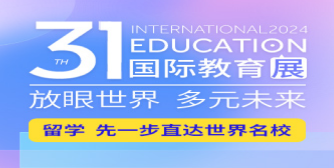Confucius and Dewey托福红Delta听力原文翻译及问题答案
2023-07-09 16:08:41 来源:中国教育在线
Confucius and Dewey托福红Delta听力原文翻译及问题答案, 今天中国教育在线就来为大家分析这个问题。
一、Confucius and Dewey托福听力原文:
M:More than two thousand years separated two of the world’s great educational philosophers,Confucius and Dewey.Yet,despite their,uh,separation in time and space,both of these thinkers held some interesting—and amazingly parallel—ideas about teaching and learning.Confucius lived during the sixth century B.C.,during China’s Classical Age,and is generally held to be China’s greatest and most influential philosopher.Confucius was,and still is,considered both reactionary and revolutionary.He’s reactionary because his perspective looked to the past,to the wisdom of the ancients.Confucius felt that his role as a teacher was to carry on the ancient tradition,rather than to create something new.He said,“I transmit,but do not create;I have faith in and love for ancient studies.”During his lifetime,Confucius studied and commented on several texts of the ancient tradition,including the books known as the Six Classics.Yes,Tracy?
W:If Confucius just studied the ancient books,why was he considered a philosopher?I mean,he didn’t create anything new.He just talked about other people’s work.
M:The way he looked to the past,his focus on the classical texts—that’s the reactionary side of Confucianism.
W:OK,but if he didn’t create anything new,how does this make him a revolutionary?
M:Confucius was a revolutionary because lie believed that there should be no distinction of social class in education.He believed that education should be,um,not just for the privileged class,but for any boy or girl who was able and willing to learn.Confucius stressed education for practical use because he believed the goal of education is to improve all of humanity.This aspect of Confucianism shares a core belief with the Western philosophy of pragmatism.According to pragmatism,the value of knowledge is a function of its practical outcome,that is,its usefulness to both the individual and the society.In the early twentieth century,pragmatism was highly influential in several fields—like government,business,but especially education.One of its leading thinkers was the American philosopher John Dewey.Like Confucius,Dewey was a scholar and educator whose ideas have had a tremendous impact,both in his time and beyond.Like Confucius,Dewey has a place among our greatest thinkers.As was the case with Confucius,some of Dewey’s ideas were considered revolutionary.Dewey’s ideas about individuality and social progress were radical in the early twentieth century.Dewey believed that the cultivation of the individual would benefit society as a whole,and therefore,the education of individual students is good for social progress.This is similar to the Confucian idea that if a man is true to his inner self,he will achieve true greatness,and that the greatness of individuals is necessary for social order.Despite the centuries that separated them,Confucius and Dewey held some similar ideas about knowledge,teaching,and learning.Confucius believed that the processes of teaching and learning stimulate each other.Teaching is half of learning,and the ideal teacher is one who goes over what he’s already learned and gains some new understanding from the experience.Compare this to Dewey’s idea that education is a continuously constructive process,with experience and knowledge building on each other.
二、Confucius and Dewey托福听力中文翻译:
M:两千多年来,世界上两位伟大的教育哲学家孔子和杜威相隔甚远。然而,尽管他们,呃,在时间和空间上是分离的,但这两位思想家在教学和学习方面都持有一些有趣且惊人的平行观点。孔子生活在公元前六世纪的中国古典时代,被普遍认为是中国最伟大、最有影响力的哲学家。孔子过去被认为是反动的,现在仍然被认为是革命的。他是反动派,因为他的观点着眼于过去,着眼于古人的智慧。孔子认为他作为一名教师的角色是继承古老的传统,而不是创造新的东西。他说:“我传播,但不是创造;我相信并热爱古代研究。”孔子生前研究并评论了几部古代传统,包括被称为《六经》的书籍。是的,特蕾西?
W:如果孔子只是研究古籍,为什么他被认为是哲学家?我是说,他没有创造任何新东西。他只是说说别人的工作。
男:他看待过去的方式,他对经典文本的关注是儒家思想反动的一面。
W:好吧,但如果他没有创造任何新的东西,这怎么会让他成为一个革命者呢?
M:孔子是一位革命者,因为他认为在教育中不应区分社会阶层。他认为教育不应该仅仅针对特权阶级,而是针对任何有能力和愿意学习的男孩或女孩。孔子强调教育的实用性,因为他认为教育的目标是改善全人类。儒家思想的这一方面与西方实用主义哲学有着共同的核心信念。实用主义认为,知识的价值是其实际结果的函数,即其对个人和社会的有用性。在二十世纪初,实用主义在政府、商业等多个领域都有很高的影响力,尤其是在教育领域。其主要思想家之一是美国哲学家约翰·杜威。与孔子一样,杜威也是一位学者和教育家,他的思想在他的时代和以后都产生了巨大的影响。像孔子一样,杜威在我们最伟大的思想家中占有一席之地。就像孔子一样,杜威的一些思想被认为是革命性的。杜威关于个性和社会进步的思想在二十世纪初是激进的。杜威认为,对个人的培养将有利于整个社会,因此,对个别学生的教育有利于社会进步。这类似于儒家的观点,即如果一个人忠于自己的内心,他将实现真正的伟大,个人的伟大是社会秩序所必需的。尽管几个世纪以来,孔子和杜威在知识、教学和学习方面有着相似的观点。孔子认为教与学的过程是相互促进的。教学是学习的一半,理想的教师是一个复习他已经学过的知识并从中获得一些新的理解的人。这与杜威的观点相比较,杜威认为教育是一个持续的建设性过程,经验和知识相互积累。
三、Confucius and Dewey托福听力问题:
Q1:Which of the following best describes the organization of the lecture?
A.A history of educational philosophy
B.A comparison of two philosophers
C.A classification of educational practices
D.A description of the learning process
Q2:Why does the professor quote Confucius?
A.To illustrate Confucius’s respect for tradition
B.To explain why Confucius was a successful statesman
C.To portray Confucius as a radical philosopher
D.To compare Confucianism with another philosophy
Q3:According to the professor,in what way was Confucius a revolutionary?
A.He emphasized the ancient wisdom of the classical texts.
B.He believed that education was more a science than an art.
C.He wrote critically about the Six Classics of Chinese literature.
D.He thought that children of all social classes should be educated.
Q4:With which philosophy is John Dewey associated?
A.Confucianism
B.Idealism
C.Pragmatism
D.Socialism
Q5:Which ideas are important in the philosophy of both Confucius and Dewey?
Click on two answers.
A.Great books are the only true source of knowledge.
B.Learning requires the memorization of information.
C.The education of the individual will benefit society.
D.Education is a combination of knowledge and experience.
Q6:What does the professor imply about Confucius and Dewey?
A.They had similar ideas about the continuous nature of learning.
B.Their teachings combined ideas from several different philosophies.
C.They rejected many traditional beliefs of their own societies.
D.Their ideas are less influential today than they were in the past.
四、Confucius and Dewey托福听力答案:
A1:正确答案:B
A2:正确答案:A
A3:正确答案:D
A4:正确答案:C
A5:正确答案:CD
A6:正确答案:A
>> 雅思 托福 免费测试、量身规划、让英语学习不再困难<<








